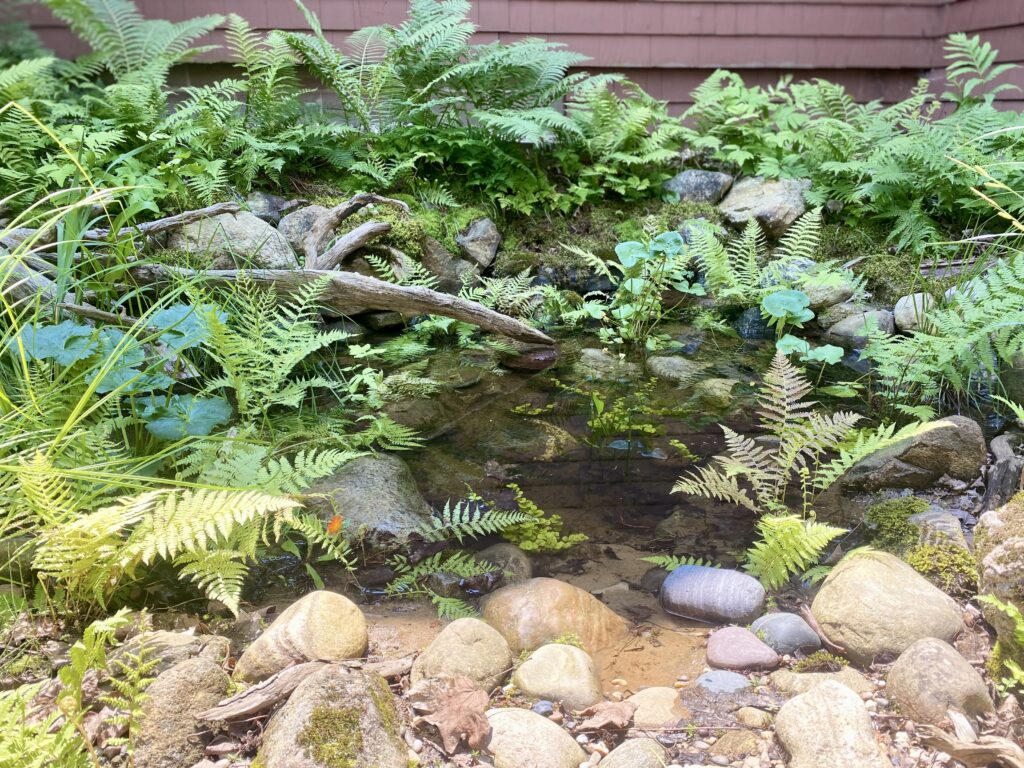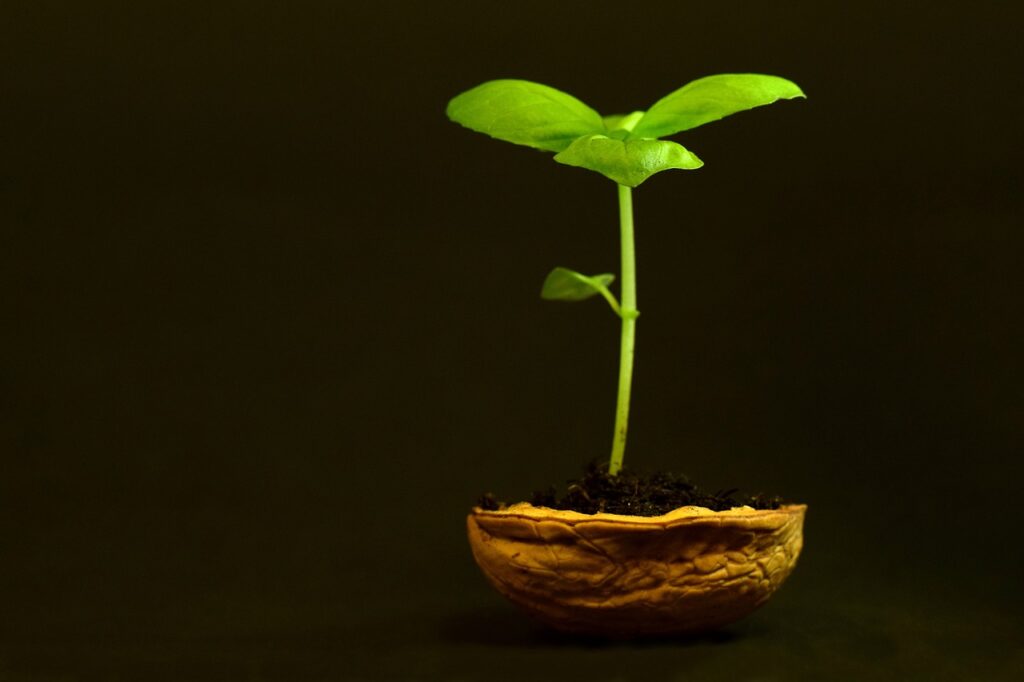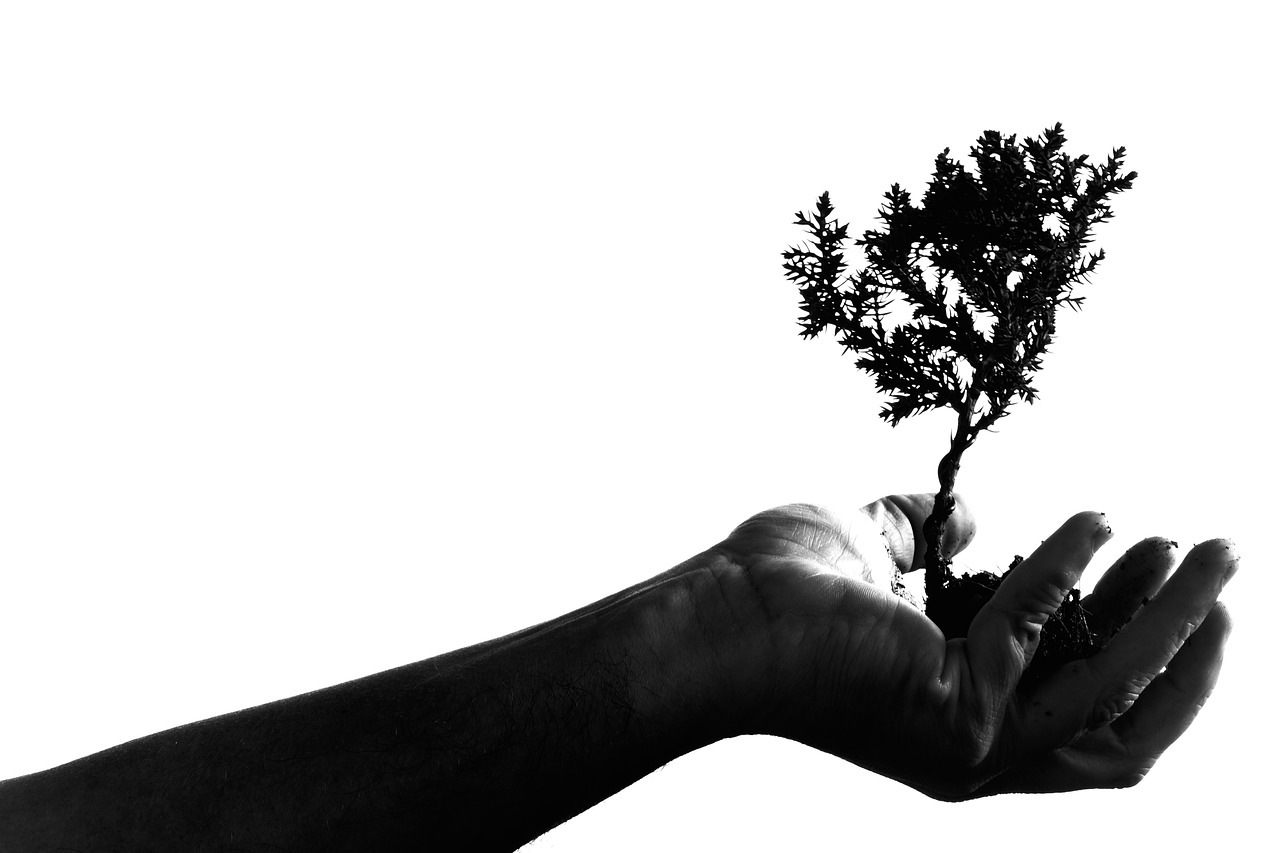How difficult is it to write a sermon? Incredibly difficult- at least for me.
Usually I have trouble focusing and paring down ideas. However, writing this sermon felt like every single word and idea was like trying to get water from a rock. I appreciate the exercise in discipline and faithfulness, and it was an opportunity to grow, you might say. Seeds, grow- get it? But is it an effective sermon? You tell me.
Below are the readings for Father’s Day Sunday, 2024, or skip down to the sermon here.
The Propers for Year B, Proper 6, Track II
The Collect
Keep, O Lord, your household the Church in your steadfast faith and love, that through your grace
we may proclaim your truth with boldness, and minister your justice with compassion; for the sake
of our Savior Jesus Christ, who lives and reigns with you and the Holy Spirit, one God, now and for
ever. Amen.
Ezekiel 17:22-24
Thus says the Lord GOD:
I myself will take a sprig
from the lofty top of a cedar;
I will set it out.
I will break off a tender one
from the topmost of its young twigs;
I myself will plant it
on a high and lofty mountain.
On the mountain height of Israel
I will plant it,
in order that it may produce boughs and bear fruit,
and become a noble cedar.
Under it every kind of bird will live;
in the shade of its branches will nest
winged creatures of every kind.
All the trees of the field shall know
that I am the LORD.
I bring low the high tree,
I make high the low tree;
I dry up the green tree
and make the dry tree flourish.
I the LORD have spoken;
I will accomplish it.
Psalm 92:1-4,11-14
Bonum est confiteri
1 It is a good thing to give thanks to the LORD, *
and to sing praises to your Name, O Most High;
2 To tell of your loving-kindness early in the morning *
and of your faithfulness in the night season;
3 On the psaltery, and on the lyre, *
and to the melody of the harp.
4 For you have made me glad by your acts, O LORD; *
and I shout for joy because of the works of your hands.
11 The righteous shall flourish like a palm tree, *
and shall spread abroad like a cedar of Lebanon.
12 Those who are planted in the house of the LORD *
shall flourish in the courts of our God;
13 They shall still bear fruit in old age; *
they shall be green and succulent;
14 That they may show how upright the LORD is, *
my Rock, in whom there is no fault
2 Corinthians 5:6-17
We are always confident; even though we know that while we are at home in the body we are away
from the Lord– for we walk by faith, not by sight. Yes, we do have confidence, and we would rather
be away from the body and at home with the Lord. So whether we are at home or away, we make it
our aim to please him. For all of us must appear before the judgment seat of Christ, so that each may
receive recompense for what has been done in the body, whether good or evil.
Therefore, knowing the fear of the Lord, we try to persuade others; but we ourselves are well known
to God, and I hope that we are also well known to your consciences. We are not commending
ourselves to you again, but giving you an opportunity to boast about us, so that you may be able to
answer those who boast in outward appearance and not in the heart. For if we are beside ourselves, it
is for God; if we are in our right mind, it is for you. For the love of Christ urges us on, because we
are convinced that one has died for all; therefore all have died. And he died for all, so that those who
live might live no longer for themselves, but for him who died and was raised for them. From now
on, therefore, we regard no one from a human point of view; even though we once knew Christ from
a human point of view, we know him no longer in that way. So if anyone is in Christ, there is a new
creation: everything old has passed away; see, everything has become new!
Mark 4:26-34
Jesus said, “The kingdom of God is as if someone would scatter seed on the ground, and would sleep
and rise night and day, and the seed would sprout and grow, he does not know how. The earth
produces of itself, first the stalk, then the head, then the full grain in the head. But when the grain is
ripe, at once he goes in with his sickle, because the harvest has come.”
He also said, “With what can we compare the kingdom of God, or what parable will we use for it? It
is like a mustard seed, which, when sown upon the ground, is the smallest of all the seeds on earth;
yet when it is sown it grows up and becomes the greatest of all shrubs, and puts forth large branches,
so that the birds of the air can make nests in its shade.”
With many such parables he spoke the word to them, as they were able to hear it; he did not speak to
them except in parables, but he explained everything in private to his disciples.
Preached at The Church of St. Luke the Beloved Physician, Saranac Lake, NY: 06/16/24
I’ve been thinking a lot about patience lately. More specifically, I think God is trying to point out in no uncertain terms that He would like me to have more of it, because it seems like everywhere I turn, my lack of patience interferes with the work He is asking me to do.
Those who know me can tell you, that I often prefer things to be quick and easy. No muss, no fuss. And because of that, I often struggle to appreciate the nuances involved in understanding or engaging people and situations.
While I excel at beginnings, the fortitude to sustain those plans and ideas sometimes seems like too much effort to cultivate. I would rather just go read a book or putter in the garden. Or better yet, read a book, lounging contentedly in our beautiful new Adirondack chairs by the St. Francis statue, and our… sometimes… pond.

Because the patience for growing into genuine Christian discipleship is a lot of work. All of the things God asks of us takes an enormous effort, in combination with the patience to wait on His providence. There’s nothing sweeter than the gifts of God, but the truth is, that He seems to give them in His own sweet time.
And I for one, grow weary of the grind, the daily uncertainty of discerning spiritual understandings and their actions. Sometimes I would love for God’s Will for me to be clear, and my ability to respond to that Will to be effortless. If I had a nickel for every time I told God, “This is too hard for me, I can’t do this” it would amount to a lot of nickels. How many I couldn’t really tell you, because I am, after all, an English major.
A perfect illustration of my point is this sermon. As some of you know, this is the fourth year that Andy has asked me to preach on Father’s Day as his present, but it’s only the third time I’ve said yes. The first year, I said “no.” And even though I said “yes” again this year, I brought all of my impatience along with me as I began the process of praying and discerning what God wanted to say through me this morning.
Coming to the lectionary, I was initially confident. The readings were perfect for me, as both someone who desires to learn and grow in the Lord, and as a gardener. Our lectionary this morning is abuzz with green growth and full of life. But not the temporary beauty and glory of a summer season, no matter how lush and green that may be, but with the abundant and eternal life in God. Ezekiel extols the blessing of God planting a young twig, and making it flourish into a shelter for His whole creation. And our psalm abounds with growth in the Lord, and the wonderful works of His hands. The promise that those who live in Him will always flourish and bear His good fruit.
But then I came to the parable, and it all went out the window.
All parables are kryptonite to impatient people like me, because they can’t be engaged superficially. Parables are not easy, or quick, to understand, but unfold slowly, only gradually revealing their layers of ultimate Truth. We don’t find in parables quick answers to the essential questions about the nature of God’s kingdom and how we are to grow into it. Because these deceptively simple stories or sayings contain an entire ecology of salvation within them. Inside each one is a new reality just waiting to be revealed. A new world’s worth of growth, ready to expose a new creation beyond their familiar characters and landscapes.
Because, on the surface, something about a parable is always confusing or out of place; they’re filled with unexpected outcomes and incongruities. So, we are meant to come to parables and find details that perplex us, because that’s how God busts up our soil and disturbs our beds, in order to plant the seeds that will grow fresh perspectives and broader understanding. Because remember, the Kingdom of God is something new and distinct. And growing into it takes patience. Jesus said, “The kingdom of God is- as if -someone would scatter seed on the ground, and would sleep and rise night and day, and the seed would sprout and grow, he does not know how. The earth produces of itself, first the stalk, then the head, then the full grain in the head. But when the grain is ripe, at once he goes in with his sickle, because the harvest has come.”
Now, as an impatient person, I can relate to this “someone” who’s in charge of the seeds. He doesn’t seem to carefully sow them as much as he just scatters them around. There seems to be no consideration for orderly rows or garden design. It’s almost as if he’s indifferent to his planting, and seemingly unconcerned with the miracle of growth about to unfold. Unlike the parable of the sower, which comes to us not even a handful of verses earlier, there’s no mention here of the viability of the soil. There is no tending or weeding, no prepping or watering; He simply scatters the seed on the ground, and then goes about his business.
Which might mean, that it is the scattering itself that is his true business. Or more appropriately, that the scattering of this particular seed is of the utmost importance. Because the seed will do what it was created to do- it will grow into its maturity. The seed that he has been asked to scatter, is whole and perfect, and contains all that’s necessary for life and growth.
Which can be difficult for us to conceive of, that a small, hard, dry seed can become a fertile and thriving green plant. And this seed sprouts and grows on its own, out of the earth, following faithfully a kind of innate, natural production— “first the stalk, then the head, then the full kernel in the head.” The seed will become the crop, the harvest, that it was always meant to be.
In the same way, the hard, dry husk of this world will be transformed. The Kingdom of God is coming into its maturity, as I speak. Its seeds will sprout and grow. Our job isn’t necessarily to understand the whole miraculous process- God alone controls the maturation of the seed. But us? We have been given work to do. We have been tasked with scattering His seeds far and wide- while we sleep and rise, night and day.
But there is an end to this work. Because “when the grain is ripe, at once he goes in with his sickle, because the harvest has come.” The whole point of the seed is not to keep being a seed, but about its fruit. God’s seed must be scattered, not because God needs to find busy work for us to do, but because His fruit is necessary, and we have yet to grow into what we need to become. As Paul explains to his beloved Corinthians, “So whether we are at home or away, we make it our aim to please him. For all of us must appear before the judgment seat of Christ, so that each may receive recompense for what has been done in the body, whether good or evil.”
So, as both a Christian and a gardener, I must be passionately concerned with growth. And the willingness to grow requires a miraculous amount of patience. But gardening and Christian discipleship are not ultimately concerned with the same thing, are they?
I absolutely love gardening on the grounds. When you see me, exhausted and covered in dirt, know that I’m grateful for the work- even if it’s buried under momentary aches and pains. Besides the great exercise and enjoyment I get from it, it’s an opportunity to further beautify, both St. Luke’s and Saranac Lake.
But all such enjoyment and exercise are temporary at best. Weeds will always pop back up, flowers will get trampled or die, and all the compost will eventually break down. God only knows what all my efforts will amount to in 10, 20 or even 100 years. Because these grounds, this village, the entirety of the earth- all of it- will one day be remade. It’s temporary.
The work of responding obediently to God’s instruction for cultivating patience, however, is anything but. It is the only work that will last eternally. Faithfully and consistently offering ourselves up to the work of God within us as we go about our days, no matter how small or how great that work may be, is a matter of our eternal salvation.
For we are all maturing. Each of us in ourselves, and all of us together- as one Body of Christ- are being made into something that we are not yet. Something requiring our work and God’s grace. As Paul tells us, “So if anyone is in Christ, there is a new creation: everything old has passed away; see, everything has become new!” Just like Jesus was the first fruits of God’s new Kingdom, we too are moving towards fruitfulness. God is remaking this world in all its beauty and dysfunction and making it into something beyond our imaginings. An eternity in which all things work together for good rooted and sustained in God’s perfect love and mercy.
At which point, growth will be anything but a struggle. No more uncertainty, no more toil. No more struggling to weed out sin. No more wrestling with repentance or discernment. Because we ourselves will be a new creation that lives and loves sheltered in God’s perfect mercy and perennial forgiveness. It’s something to look forward to with eagerness, hope, and anticipation.
But as for today, all we need is to ask God what He wills for us, having faith that the seeds are good, and that the work is worthwhile. And trusting in Him, with ever-growing patience and faithfulness, to accomplish it
In the Name of the Father, and of the Son, and of the Holy Spirit. Amen.



Patience is not a quality bred in my psyche. However, this past year has taught me that patience is vital if one is to persevere. I have learned to throw away my efforts to control all things in my life and “let God.” This has been so hard for someone who grew up believing that God helps those who help themselves. And while I have been working on control, I am not always successful. I am working on patience; this seed is sprouting, even though the gardener is not skilled. Your sermon was wonderful. Fr. Andy must be very proud. Love to you both.
Thank you for your thoughtful response, Sharon. I think the “success” is in the perseverance, which is so difficult, but is so important. It sounds like you are living that out in your spiritual journey, and I’m so grateful to hear from other sojourners traversing this difficult way. I’m grateful for you, for your spiritual example, and your friendship.